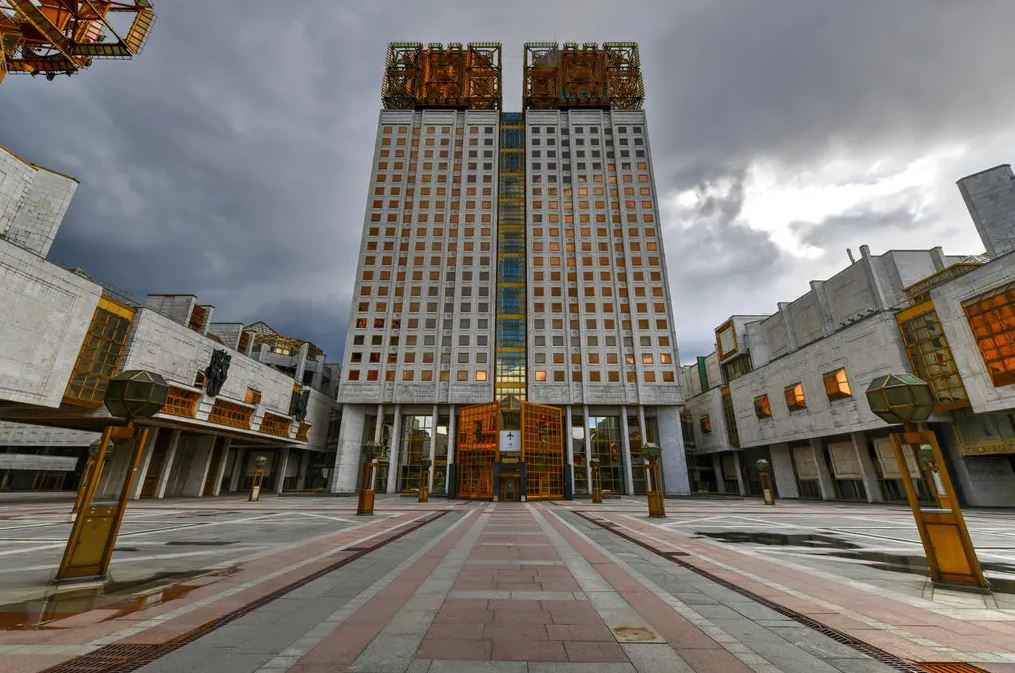The election for new members of the Russian Academy of Sciences will take place later this month, and some academic scholars in Russia are secretly attempting to prevent colleagues who have backed their country’s invasion of Ukraine from being elected to the academy.
If they are successful, people who support the war will be unable to get an esteemed degree that may be used to gain reputation in Russian educational establishments. In spite of the government’s crackdown on dissent, their effort may also demonstrate that it is still feasible to engage in certain forms of protest.
The Russian Academy of Sciences is a network of research institutions throughout the Russian Federation that are run on a non-profit basis and specialise in a wide range of scientific fields. It has slightly under 1,900 members in Russia and roughly 450 members located in other countries who do not have voting rights.
Every three years, new members are chosen to join the academy. The forthcoming election will begin on Monday and will be for 309 seats. Of those seats, 92 will be reserved for senior academics, while the remaining 217 will be for corresponding members. There have been over 1,700 people apply for this position, thus the competition is fierce.
This month, a group of Russian researchers began circulating a list of dozens of candidates who have publicly supported Russia’s invasion of Ukraine. These candidates have shown their support for Russia’s invasion of Ukraine by either signing pro-war declarations or letters that their universities or institutions released, or by making statements along these lines themselves.
In March, a statement expressing support for the conflict was signed by hundreds of high-ranking officials at Russian universities. The majority of those who signed the letter were administrators rather than notable scientists.
However, a significant number of academic scholars have adopted an antiwar perspective. Since the first publication of the open letter in February, which voiced opposition to the invasion, over 8,000 Russian scientists and scientific journalists have added their signatures to it.
Three academic researchers have stated, in interviews, that they assisted in the creation of a list of individuals who supported the war in order to prevent those individuals from being elected to the academy. These individuals have requested anonymity because publicly opposing the war puts them at risk of losing their jobs, being imprisoned, and their safety.
In recent years, there have also been allegations that members of the academy have engaged in unethical behaviour. A commission that was appointed by the body in 2020 came to the conclusion that Russian academic journals and research publications were riddled with instances of plagiarism, self-plagiarism, and gift authorship. Gift authorship is a form of plagiarism in which scientists are listed as co-authors of manuscripts without actually contributing to the work. As a direct response to the findings of the investigation, a number of Russian academic publications have withdrawn more than 800 pieces of research in which the authors are suspected of engaging in unethical behaviour.
In a second exposé published in 2020 by the same panel at the academy, it was discovered that some rectors and other high university administrators had published articles in dubious publications, listed phoney collaborators, and plagiarised.
It is not the first time that the Russian Academy of Sciences has been drawn into discussions about Russia’s invasion of Ukraine. The organisation issued a statement on the war on March 7th. Critics said it was not as openly antiwar as it could have been and that it should have condemned Russia’s invasion more directly. Some observers believed it was the closest any official institution in the nation got to criticising Russia’s aggression.
However, the statement did address the consequences of the conflict and how the international community’s reaction to it would have an effect on Russian research, which is a worry that is shared by academics in Russia.
As a direct consequence of the conflict, a number of researchers were forced to leave Russia. Under the auspices of initiatives such as Scholars At Risk, educational establishments from all over the globe have made places available to academics hailing from Russia and Ukraine. Anna Abalkina, who is of Russian descent and works as a sociologist at the Free Institution of Berlin, said that she was aware of several people who migrated to her university.
The increasing isolation of Russian scientists working in other countries is another issue that has to be addressed. Many Russian scientists are prevented from taking part in specific projects, from working with overseas colleagues, and from attending certain conferences.
According to Dr. Albakina, another cause is the choice made by prominent international databases such as Web of Science and Scopus to discontinue providing their services in Russia.

